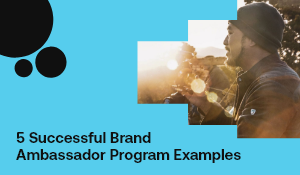Blog
3 Big Problems Marketers Face Today
Three of the biggest problems marketers are facing today from somebody on the receiving end. Duel speaks to Content Manager, Flora Busby.
Conventional is no longer functional in the advertising world. It seems that we are simply not receptive to, nor a particularly a fan of, broadcasting. Lucie, Account Manager at Duel, considers how this is affecting marketing brands and what we can do to improve the situation. Flora Busby, social media blogger, and Content Manager who has previously worked with the likes of Barclaycard amongst other financial companies, explains the top three issues affecting marketers now.
1. Ineffective advertising
Advertising is a key area which brands aren’t getting right Flora explains. Marketers are focusing their energy on meeting stringent legal requirements meaning that they are failing to prioritise engaging with their consumers. Neatly put by Flora, churning out creative or copy which gets the big green legal tick does not necessarily make for good quality advertising.
Advertising is only sixty years old or so, she says, but storytelling has been going on since the very beginning. It makes sense that we are less receptive to advertising than we are to telling and listening to (brand) stories. If allow your brand to tell its story, you add a human face to your business. As Flora states, people don’t want to see shiny advertising campaigns. They want real, relatable and retellable.
How do we reach consumers? You don’t need to push out advertising, let your customers tell your story for you asserts Flora. Let your consumers get involved and show how much they love the product. When we see other consumers passionately endorsing a product, it goes without saying that we are more likely to buy it. In fact, 66% of UK consumers place more trust in customer photos than in brand creative (Campaign Live). How can you get your audience involved in your campaign? As stated by Campaign, gone are the days of function, emotion and ideology; this is the age of the audience.
2. Trolling social media campaigns
Launching a campaign on social media and giving your customers a voice on your platform is a great way to engage with your consumers, but it’s also a scary prospect for marketers who are used to being able to control exactly what their audience sees as part of their campaign. Flora feeds back from a recent UGC social media campaign she worked on.
The campaign was a great success. Hundreds of participants uploaded pictures of their purchases for the chance to win the money back in their accounts, providing the company with UGC and initiating a personal relationship with their customers. Unfortunately the campaign did receive a number of negative comments from those who didn’t win which were then given a platform through the campaign being visible on their social media.
The solution? There are a couple of ways to deal with awkward commenters or ‘trolling’.
Firstly, Flora recommends setting up alternative customer services channels. Whether it’s an additional account on twitter or exploring other ways of helping consumers, you can direct feedback away from campaigns and to more suitable channel.
Secondly, you can delete negative comments so that they’re not visible. However, this is not advisable. Flora stands by the need to acknowledge negative feedback. It is important to solve customer problems and to be seen helping.
Thirdly, use a platform where you can pre-moderate content. Platforms which harvest their own content on micro-sites allow marketers to ban inappropriate submissions before they reach the public eye. Moreover negative feedback can be dealt with through a more appropriate channel and you’re not giving negative feedback a platform through your campaign.
3. Participation
Having worked in finance marketing, Flora has found that one of the biggest challenges in marketing financial brands is the innate distrust and complications surrounding the industry. It is not surprising that financial corporations are not our favourite brands to interact with nor endorse.
However UGC campaigns boost authenticity, engagement and consequently purchase. In fact, consumers aged 18 to 36 trust user generated content 50% more than they do traditional media (Crowdtap).
So, what does Flora recommend to inspire participation?
Incentivise incentivise incentivise. Unless there is a reason for people to take time out their day to engage with brands, they are simply not going to says Flora. People do not want to share their new purchase from Amazon on Facebook, but they might do if they got the chance to be refunded for whatever they bought.
How are you using your audience? Let us know If you would like to be featured in our series, please get in touch. Or if you would like to discuss how Duel can power your user generated content strategy drop me a line.
Duel allows brands to engage with consumers and drive engaging content in a manageable and brand-safe environment.
By Lucie Hayter


